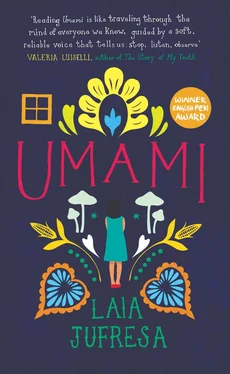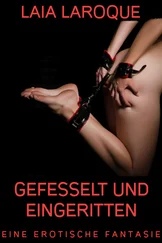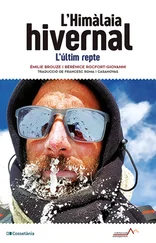One thing Noelia never spoke about at dinner parties was The Girls. And I was grateful to her for that, but now I regret it. Or rather, I don’t regret it, but I’ve changed since then. Before, if Noelia took The Girls out on the street, I was so uncomfortable I’d run around in circles making sure the neighbors didn’t see us passing by with the stroller. Now I couldn’t care less. I don’t care if I’m the crazy old man on the block. Some months ago now, I started to show them off around the mews and explain to anyone interested that they are indeed dolls, but special dolls. Turns out the real girls adore my girls. In the evenings I put them in the stroller and take them for a turn, whistling. I still don’t dare take them beyond the mews and onto the street, but I’m contemplating it.
‘You’d look hot walking them! Like a sexy granddad.’
‘What a generous liar you are, love, thanks.’
‘Take them out, it’ll do you good.’
‘I’ll give it a go.’
*
About her friends with children, which was all of them, Noelia would say, ‘Their lives shrink.’ But when it came to other women like her, the only-a-daughters, she would scoff, ‘Career women!’ from the very height of her own hypocrisy.
‘Well, that’s the pot calling the kettle black! If there’s anyone who’s devoted their life to their career it’s you,’ I’d point out.
‘I don’t consider cardiology a career.’
‘Oh no? What would you call it then?’
‘A vocation,’ she’d say, and then, a second later, roar with laughter.
Her friends assured her that it wasn’t true; quite the contrary: when kids fell into the mix, life proliferated, grew big, enormous even. You lived for two, three, six. It wasn’t true that you never got to go to the theater anymore, and in any case watching the person you gave birth to grow up was better than any damn play, how could she think of comparing the two things!
‘Oh, the arrogance!’ Noelia said to me. ‘How dare she compare her little brat with the arts?’ But she took it back in an instant, ‘I’m sorry, it’s a classic only-a-daughter symptom to confuse maternal love with arrogance.’
But the truth is Noelia didn’t fully understand those mothers. It wasn’t within her powers to, just like it wasn’t within mine to understand her relationship with The Girls. I became agitated every time she invited me into the pink room. Nothing in that space went right for me, and you could tell I was an intruder, like one of those people who visit Saudi Arabia and dress up in local garb to sneak into the mosques, but get found out because everything about their demeanor screams tourist. Oh, wait, that’s me too.
Our childless life was neither big nor small. I don’t know exactly what size you’d call it: regular. And having The Girls opened up a space that we hadn’t had before. The bedroom is full of saccharine knickknacks that my normal self would detest, but the truth is that lately I feel good in there among all the frills and lace. Sort of understood. Or maybe just seen. Only Noelia Vargas Vargas knew how to see me in this life. And now I have no way of knowing how much of me existed only by virtue of her gaze.
*
It took Noelia’s cancer for me to stop seeing the dolls as mere dolls and to start seeing them as The Girls. I supported Noelia in her whims for years, but inside I always kept my distance; a kind of protective irony. When Noelia wanted the room upstairs for them, I accepted. When she wanted to line the walls with imported pale-pink and bone-white striped wallpaper, I asked myself who was I to put up a fight if she was footing the bill? When she bought the booster seats and started to take The Girls with us in the back of the car, I told myself that what doesn’t kill you makes you stronger. And, looking back, the emotional rollercoaster that The Girls brought with them acted like a shot of youthfulness in a marriage where we took most things for granted. Sometimes I was embarrassed by Noelia, and at other times proud of her. Some days her little game seemed funny, and others it broke my heart to see her there in the house carting around a baby who wasn’t a baby. And who wasn’t mine.
One time, a police officer smashed in one of our car windows because Noelia had left The Girls in the backseat while she popped into the bank. The police officer thought he’d played the hero, and afterward, Noelia had to slip him a bribe to mitigate his resentment at having ‘saved the lives’ of two inanimate beings. I always understood my wonderful wife’s care as one of her little eccentricities. Or a hormonal process, maybe. A secondary symptom of the uniquely named pain she felt in her uterus. Because, of course, Doctor Vargas Vargas coined an illness — half-Italian, half-Latin — to explain the pain that an only-a-daughter felt when mothers and their children went past: uterus mancanza .
It was all very weird, but also harmless. When people gave us funny looks I would become defensive, sort of animalistic, sort of ready to go for the jugular of normal people and things. Did I think the whole reborn thing odd? Of course I did. But it didn’t hurt anyone, and it made her feel better. The way I saw it from my privileged view in the royal box, the symptoms of uterus mancanza had hit Noelia too late in life; just a pity, perhaps. But it knocked her for six, and the fact that she found ways to alleviate the distress she felt, well, that’s the opposite of odd, isn’t it? That’s garden-variety maternal impulses: by taking care of The Girls she was looking after herself. She took the reins, identified what it was that hurt her and found the best palliative out there. Isn’t that taking responsibility for yourself? Moving beyond your childless condition to a state of maturity (that supposedly unachievable state for people who are only a child)? And yet, if I ever tried to congratulate her on any of these things, Noelia would answer, ‘Doctors, eh? Only ever treating the symptom!’
*
I’m writing with news: today I took The Girls to the Mustard Mug. It was a real palaver. First of all they didn’t want to let me in with my ‘granddaughters’. I explained that they were dolls and they didn’t believe me. The entire kitchen staff (of two) had to come out and confirm that they weren’t babies before the barman would believe me. And then he became all aggro thinking I was there to sell them. In the end I had to resort to emotional blackmail, reminding him of my extremely loyal custom to the Mug. Between taunts and apologies, eventually they let me in, and the adrenaline only stopped pumping through me when I was back at my usual table. My bones ached. I was hot and bothered and red in the face. I drank too quickly, with each sip seeing more and more clearly what the others had spotted the moment I walked in with the stroller: that I am a ridiculous old man.
But then Linda showed up, and, as if it were the most natural thing in the world, I picked up one girl and she picked up the other. We held them in our arms as we spoke. And then I was seized by a new, let’s say triumphant, happiness.
‘It’s my right,’ I wanted to say. ‘It’s my right as an old widower to have something to love. Something that isn’t a someone. Something that can’t die on me.’
But now the happiness and the triumphant feeling have passed. Now I’m hungover in my study at four o’clock in the afternoon. The sun is too bright; it’s showing up all the dust on the furniture. I go around in obsessive circles thinking a ) it’s time to grab the mop and get on with my house chores, time to seek the semi-peace they afford me; and b ) that I didn’t get to choose a damn thing.
I would have liked to have children. Lots. Tons of them. Or at least a few. At least one. Half. A piece.
Читать дальше












